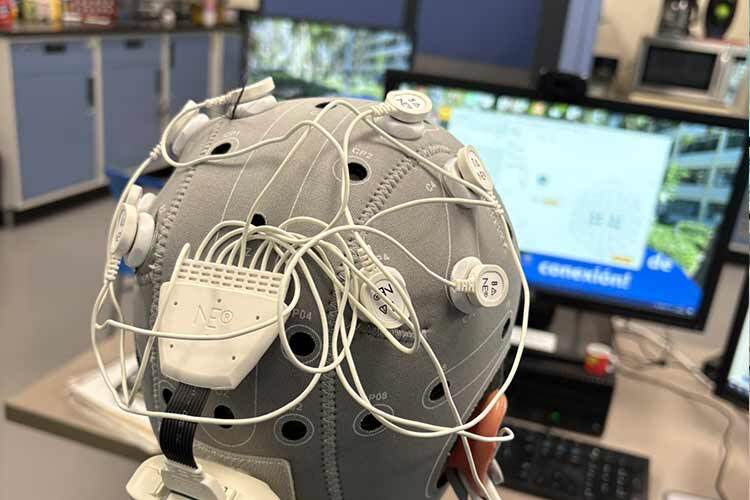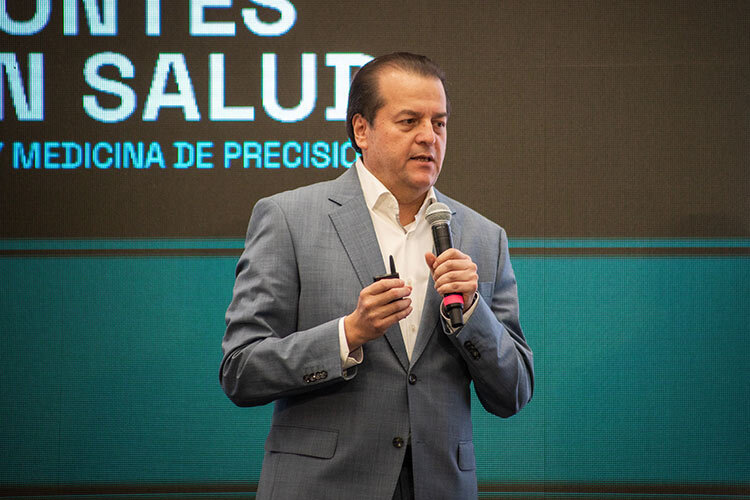Breast cancer −and cancer in general− is generally thought of as a disease that affects mainly older women. However, there are young patients under 40 years of age who may suffer from it.
“In countries like Canada and the United States, five to seven percent of women with breast cancer are young, and between 11 and 15% in Latin American and African countries,” says Cynthia Villarreal, director of Clinical Oncology at the Center for Breast Cancer from TecSalud, in an interview with TecScience.
This type of cancer is the most common and most deadly in young patients. Furthermore, the tumors they present tend to be more aggressive than those in older women, and the disease is usually detected in more advanced stages.
This is partly because, sometimes, both they and their doctors discard some signs that could indicate that they have this disease since it is not suspected that someone their age is at risk of having it.
Ten years ago, when Villarreal returned from doing her subspecialty in breast cancer at the Sunnybrook Odette Cancer Center, Toronto, she realized that in Mexico, there were no specialized programs to address the specific needs of young women with cancer, while in Canada, there were.
“Now at the National Cancer Institute (INCan), I began to realize that every day we had young patients with these needs unmet,” she explains.
With this in mind, she decided to found, together with Alejandra Platas de la Mora, Young and Strong (Joven y Fuerte), a program dedicated to young patients with breast cancer in Mexico that is conducted in several hospitals in the country, including the Zambrano Hellion and San José Hospitals from TecSalud, as well as InCan.
“It’s been a very rewarding project because a community of young patients who can feel isolated have formed. By finding women of a similar age, with similar problems, they can support each other,” says Villarreal.
Breast Cancer And Fertility Preservation
The program’s objectives are to promote timely detection, inform patients about the disease once they receive their diagnosis, provide comprehensive and multidisciplinary treatment specific to each case, and prepare patients to resume their lives once treatment ends.
“Fortunately, we currently have very effective treatments, and most patients are cured,” explains Villarreal.
One of the many aspects they seek to cover with the program is to use strategies to preserve patients’ fertility. Throughout their experience, they have found that 50% of their young patients are worried about their fertility, and around 30% have not had children yet.
This concern must be discussed between doctors and patients before starting treatment, as chemotherapy and endocrine therapies −better known as antihormonal therapies− can affect the activity of the ovaries, which in turn can complicate having children later.
The good thing is that if you want to have children after your treatment, there are strategies that allow you to do so. These include freezing eggs or embryos, as well as being treated with injections that protect the ovaries during chemotherapy.

In a study published in 2021, Joven y Fuerte reported that of 447 patients, 12% preserved their fertility, representing 38% of the women who had reported the desire to conceive after treatment.
They also found that younger age, higher education, employment, health insurance, and having one or no children were associated with a significantly higher likelihood of fertility preservation.
Temporarily interrupting antihormonal treatment in breast cancer patients to try to get pregnant is another safe and effective way to preserve their fertility, as reported by an international research group in 2023.
Although most of the research that they have done regarding fertility has been related to breast cancer, these strategies apply to other types as well.
Strengthening the Communication Between Doctors and Patients
According to Villarreal, for a long time, there was a myth that a woman who had cancer should not get pregnant after treatment because this increased the probability of recurrence. However, there is enough evidence to show this is not the case today.
Therefore, it is important to raise awareness among health professionals so that they inform their patients about the risks to fertility posed by cancer treatments, ask them if they want to have children in the future and explain to them what strategies they can follow to make this wish a reality.
“Information is empowering; it’s knowing that there’s a risk of fertility but that there are many things we can do about it,” says Villarreal.


















